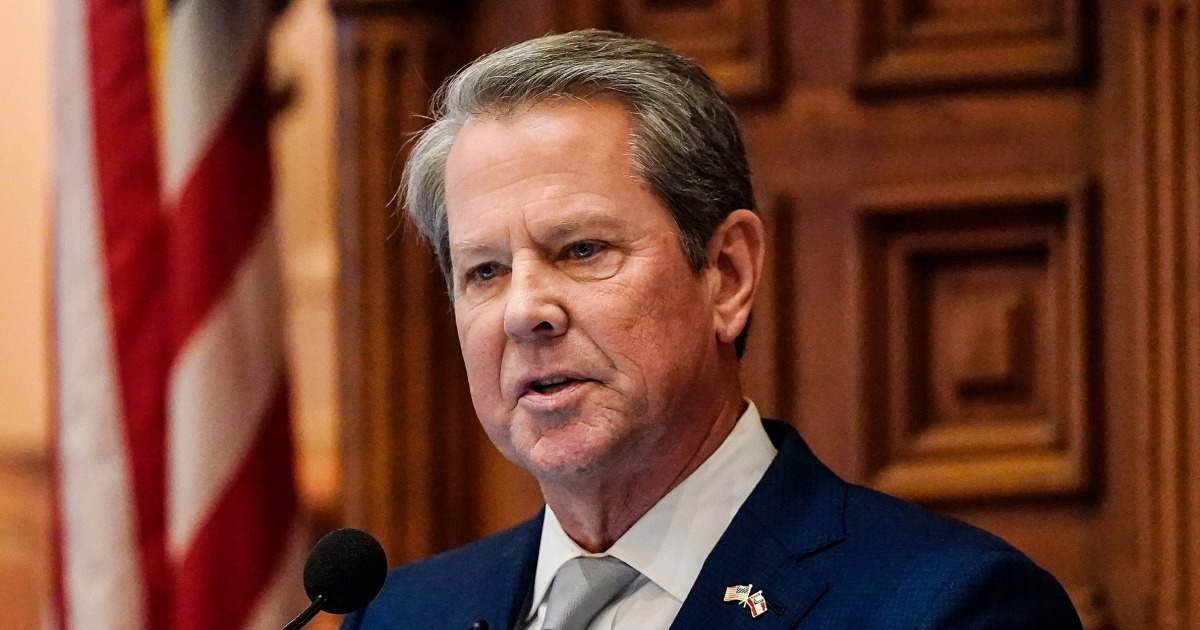
Georgia Gov. Brian Kemp has decided not to run for Senate next year, dealing a blow to Republicans who viewed the two-term governor as a top recruit.
The state is a major target for Republicans as they look to expand their three-seat Senate majority. Georgia is one of two states, along with Michigan, where Democrats are defending a seat in a state that President Donald Trump won last November. Democratic Sen. Jon Ossoff is running for re-election in Georgia, while Sen. Gary Peters is retiring in Michigan.
Kemp, who cannot run for re-election as governor due to term limits, said in a statement posted on X that a Senate run is “not the right decision for me and my family.
“I spoke with President Trump and Senate leadership earlier today and expressed my commitment to work alongside them to ensure we have a strong Republican nominee who can win next November,” Kemp wrote, “and ultimately be a conservative voice in the US Senate who will put hardworking Georgians first.”
Kemp’s decision to forgo a Senate bid could spark a competitive GOP primary to take on Ossoff, who won his seat in a dramatic Jan. 5, 2021, runoff following the 2020 general election. Multiple members of Georgia’s congressional delegation — including Reps. Buddy Carter, Rich McCormick, Mike Collins and Marjorie Taylor Greene — have suggested they would consider a bid if Kemp did not run.
Greene the far-right congresswoman, indicated to NBC News last week she’s considering a Senate run.
“I have just a lot of options open to me,” she said, without engaging on whether she is being encouraged to run or actively making calls on it.
“Not really discussing it at this time,” Greene said.
Among other statewide elected Republicans, state Agriculture Commissioner Tyler Harper posted on X in February that he met with the NRSC, and Insurance Commissioner John King also told The Atlanta Journal-Constitution late last year that he would “take a hard look” at a Senate run — if Kemp stayed out.
Republicans expressed confidence that they were in a strong position to flip the seat, even without Kemp as the party’s nominee.
“While Jon Ossoff is running to impeach President Trump, Republicans have a number of strong candidates who can build a winning coalition to add this seat to President Trump’s Senate Majority,” National Republican Senatorial Committee spokeswoman Joanna Rodriguez said in a statement to NBC News, referring to Ossoff’s recent comments that Trump “has already exceeded any prior standard for impeachment.”
Democratic Senatorial Campaign Committee spokeswoman Maeve Coyle said Kemp’s decision is “yet another embarrassing Republican Senate recruitment failure as they face a building midterm backlash where every GOP candidate will be forced to answer for Trump’s harmful agenda. Senate Republicans’ toxic agenda and recruitment failures put their majority at risk in 2026.”
Republicans had viewed Kemp as a top contender if he ran against Ossoff, with NRSC chair Tim Scott openly calling the governor his party’s “number one recruit,” in an interview with Semafor back in January.
Kemp won his second term in 2022 by nearly 8 percentage points, winning more than 53% of the vote in a race against Democrat Stacey Abrams two years after President Joe Biden narrowly carried the Peach State.
Kemp also easily fended off a primary challenge in 2022 from former GOP Sen. David Perdue, who had Trump’s endorsement in the race. Trump targeted Kemp for opposing Trump’s efforts to overturn the 2020 election results, vowing to campaign against the governor and Secretary of State Brad Raffensperger, who also defeated a Trump-backed challenger in 2022.
But Kemp’s strong performance in that primary showed that he was able to maintain support from the party’s conservative base of supporters. After Kemp endorsed Trump’s presidential run last year, Trump thanked the governor “for all of your help and support in Georgia.”
Kemp was first elected governor in 2018, winning by around 1 point against Abrams in a banner year for Democrats.
